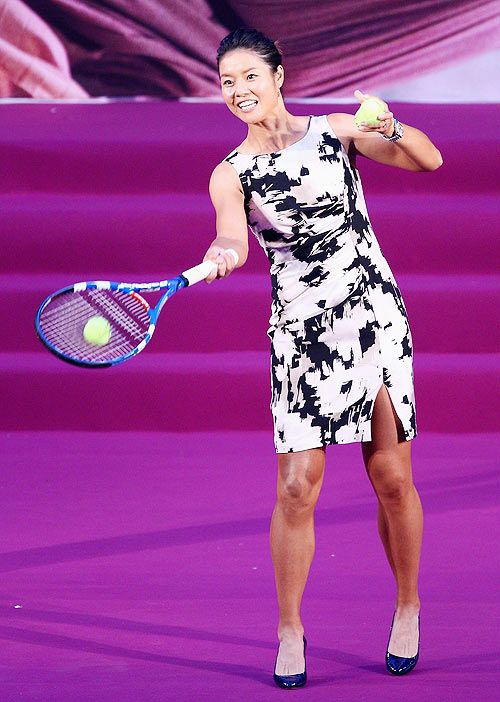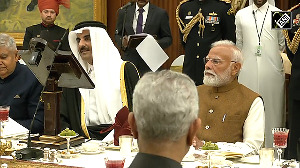
China's Li Na, Asia's only Grand Slam singles champion, announced her retirement from tennis on Friday, citing the effect of long-term injuries, especially her knees.
"It has been a difficult year, and I have had to face a lot of things, such as making the decision to end my professional tennis career," Li said in a statement.
The 32-year-old won the 2011 French Open and this year's Australian Open. Known affectionately as 'Big Sister Na' and 'Golden Flower' in China, she said it was the right time to leave the court.
"As a professional tennis player, leaving the field of competition at this moment is for me the correct decision," she added.
The pain in her right knee had become hard to deal with, Li said.
"Competition is fierce in the sport of tennis, and requires athletes to be at their best. As for me, I can no longer get back to being 100 percent," she added.
The Chinese Tennis Association, in a statement released by the official Xinhua news agency, said it respected her decision and wished her the best.
"We also thank Li Na for the passionate and proud, shining moments she gave to Chinese tennis in her competitive career," it said.
For many young people in China, Li is a role model, with her steely determination, broad smile and English language skills emblematic of a confident and rising country.

Sport and politics remain tightly woven in China, where elite athletes are handpicked from a young age to be nurtured by the state. Only a handful are allowed to manage their own careers.
Li, who was identified as a potential badminton talent as a child, was steered into tennis before her teenage years, but had to be coaxed back into the game in 2004 after walking away to study media at university.
Despite growing adulation from her success, including becoming China's first WTA title-winner in 2004 and first grand slam quarter-finalist at Wimbledon two years later, Li has proved a reluctant standard-bearer for Chinese tennis.
After numerous clashes with local media and Chinese tennis authorities over training routines and pay, in 2009 the strong-willed Li was permitted with four other top women to manage her own career and keep a greater share of her winnings.
China has a history of placing enormous expectations on athletes who have reached international acclaim and each live broadcast is usually viewed as a barometer of global standing or national pride.

In 2008, when defending champion Liu Xiang was forced to drop out of the 110 metres hurdles at the Beijing Olympics due to an injury, his withdrawal was met with tears, anger and accusations that the athlete had let the nation down.
Li is among a handful of top women players whose success in an individual game inevitably conflicted with their country's Soviet-style sports system.
Shortly after returning to training from two years out of the game, she won her country's first WTA tour title on home soil in Guangzhou and two years later was in the quarter-finals at Wimbledon.
During her career, she won nine WTA events, including the two grand slam titles, and reached number two in the world rankings.
She earned more than $16 million in prize money and much more in endorsements and sponsorship, becoming one of the world's highest-earning female athletes.













 © 2025
© 2025